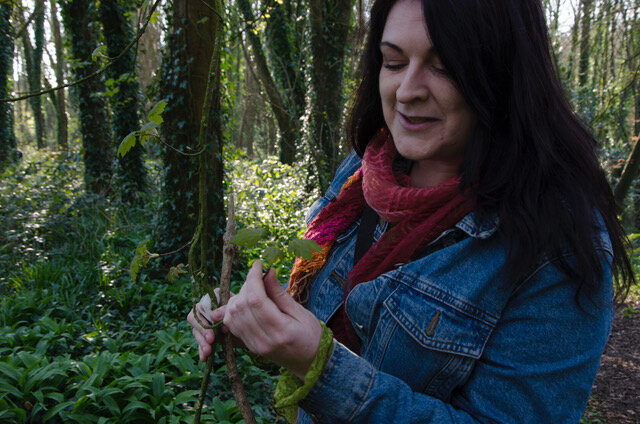Celebrating the Passing of Time With Food and Stories
Food is a huge part of how we mark the passing of time. We asked Lorraine O’Dwyer to tell us the different ways we gather and celebrate food throughout the year.
Lorraine foraging in Courtown Woods
Lorraine is a professional Seanacai [storyteller] and our official Taste Wexford tour guide. Check out our Tours & Trails page and gallivanting.ie to see the abundance of tours and events she hosts throughout the year.
The sun is shining and spring is finally in the air after what may have been the longest winter in living memory. Lots of people still remain working from home and all of us are restricted to our 5km limit. Many of us are all finding this Lockdown a little hard to deal with. The halcyon days of baking banana bread and sourdough, and spending hours creating intricate and time-consuming evening meals have long since faded.
But, we can look to the past to help us through this time, Ireland’s ancient food and agricultural festivals are one way that can really help us cope with these rolling lockdowns and food fatigue. Let’s look to our ancestry for inspiration because if there was one thing they knew, it was what to do with the resources that they found within their 5km.
The Start of the New year - Samhain
It all started in October: first, it was Samhain, then All Saints Day and Halloween. The Celts saw it as the start of the new year, believing all life began in the dark, from the seed under the ground to an unborn baby in the womb. Later on, we saw it as the start of winter, a time of hard, cold weather, short days and long nights to endure. This year though, it was the beginning of what would become months of lockdowns. And so we got outside and started to appreciate the fruits of our forests and hedgerows.
We remembered the traditions of old - picking blackberries, crabapples, rowans and elderberries. I know many kitchens across the country got busy making jams and chutneys, and we’ve even seen a revival of rowanberry wine to be enjoyed over the long nights ahead. Late root vegetables like leeks, cabbage and parsnips were turned into the ultimate comfort foods; boxty, colcannon and hearty stews served over butter-laden mashed potatoes.
moving to spring - Imbolc
Skipping past Christmas, we go straight to Imbolc in February or - as it was known in later times - Candlemas. A time when our ancestors began to see the first pails (buckets) of milk as the animals began to produce milk again as lambs and calves are born. It was a tradition in many places to gift freshly churned butter and buttermilk to poorer members of the community at Candlemas. And I can tell you, making your own butter using a Kilner jar and some locally sourced cream is a great way to shake away any lockdown frustrations.
But it is to the next two festivals we must look to now as they bring the tribes back together. March and April see the landscape bursting into life as the forest floor transforms itself into a giant salad and the abundance of food available starts to peak in May. After the dark months of stored, dried and salted foods, our ancestors spent these months filled with growing of brighter days, detoxing their livers with dandelion or beech leaf tea, building up their depleted reserves of Vitamin A and C with bunches of sorrel, wild garlic and nettles. My family experimented with making our own garlic butter and pestos, picking huge bunches in Courtown Woods. We debated on whether or not to try making dandelion wine, opting instead to make a delicious dandelion, wild garlic and nettle tart.
Nettle and dandelion pesto
Celebrating Bealtaine
And now we look to the May Bank Holiday or, as it was known, Mayday and even earlier - Bealtaine. A hugely important day in rural Ireland and here in Wexford, it’s the traditional start of the tourism season. So again, we look to the past for inspiration. The cattle kept locked away from the cold in sheds are driven out to pasture or brought up the hillsides to enjoy the rougher grasses growing there as they have been for so many centuries past.
So much tradition surrounds this time and much of it involves milk. Known as Bán Bidh or Whitemeat, milk was such a huge part of our ancestors’ diets. It is still a few months away until the grains or potatoes would be ready to harvest, so milk made up a huge part of their diets. Buttermilk, fresh milk, thick milk, whey, butter, curds and cheese. Dairies were fiercely guarded and hung with garlands of rowan berries to keep the fairies away, cows blessed with smoke from giant communal bonfires, the fields from its ashes. Our folklore records are filled with strange curses that might transfer the bounty of your neighbour’s cattle to yours! So, maybe it will be a time to try to recreate a Wexford favourite of curds and oats - the inspiration for Quebec’s poutine perhaps. Or maybe chowder - said to have been first made here in Wexford with the arrival of the Normans, blending our love of dairy with the fish stews made in their medieval French ‘chaudron’ fish pots.
Lorraine foraging for Wild Garlic
Time to Feast - Lughnasa
The big festival held each year over the August Bank Holiday - Lughnasa. It is still marked here in Wexford as Mountain Sunday. Before COVID struck, we used to mark this time at the Rockin’ Food Festival, a festival of food and music in Enniscorthy. Taking over Enniscorthy Castle for a Harvest Feast, like the ones that were undoubtedly held there over its 800-year history. We even recreated the Blessing of the Bread Ritual - a tradition of baking a special loaf of bread with the first grains to be shared amongst all your neighbours to ensure everyone was blessed with a good final harvest.
This year, I shall look forward to climbing the Blackstairs to gather frockens - small blueberries that make an amazing sweet pie, another tradition practised here for goodness knows how long. I know as a small child, I loved heading off with my grandmother to pick the berries, listening to the stories of her childhood when great crowds that would gather on the mountains to share picnics and enjoy the good weather. And while I may not try to recreate the ancient Celtic ritual slaughter and barbecue of a prize bull over a sacred fire, his blood gathered to sprinkle on the fields, I do look forward to at last inviting friends round for a barbecue, maybe with some Macamore Buffalo and glorious fresh fish on the grill instead.
This year has seen so many changes and yet left us feeling like time has stood still. I’m grateful to my ancestors for figuring out a way to mark the wheel of the year through signs of what is growing and happening on the landscapes. Passing of time can be fun and a learning experience, even within our 5km limit.
Lorraine O’Dwyer, founder of gallivanting.ie




